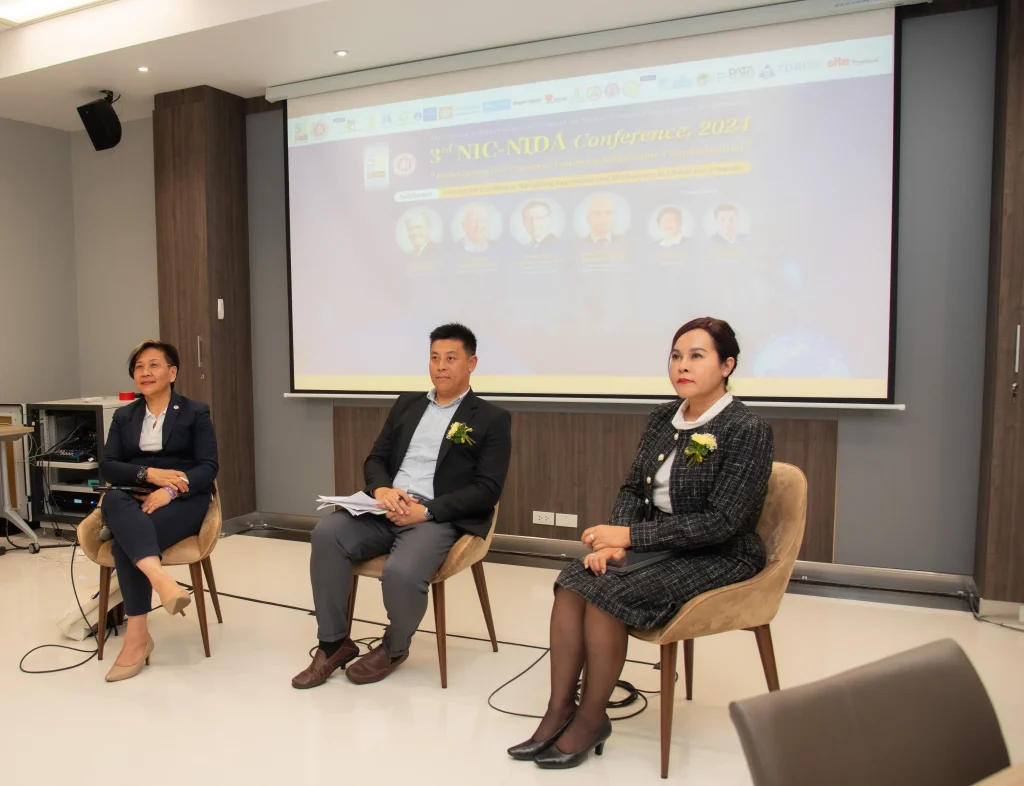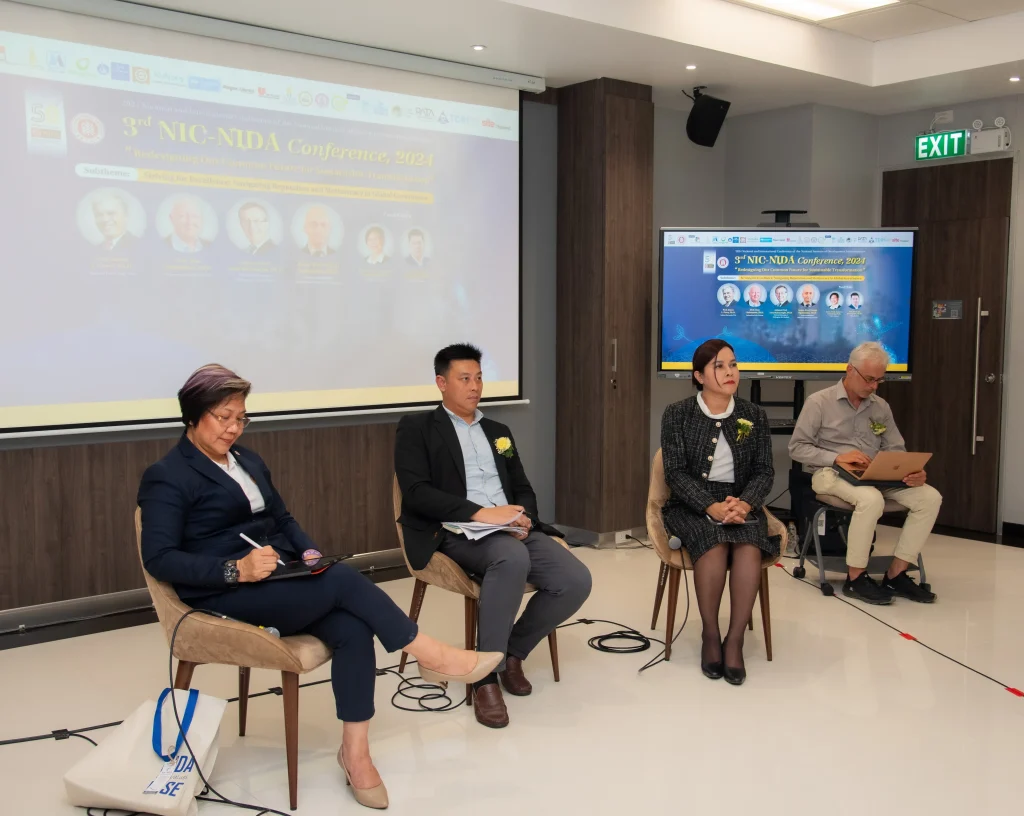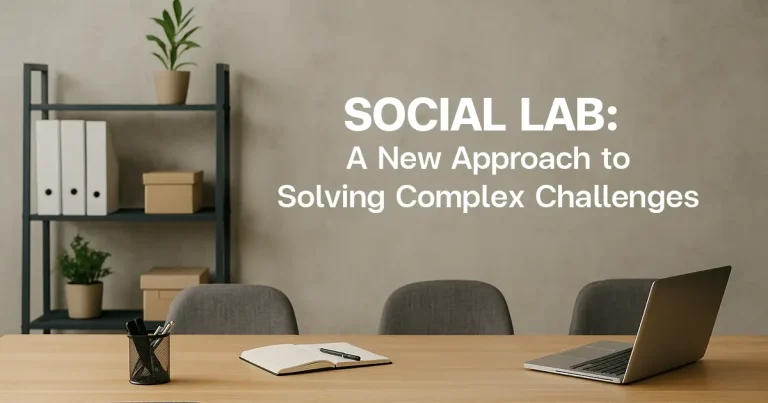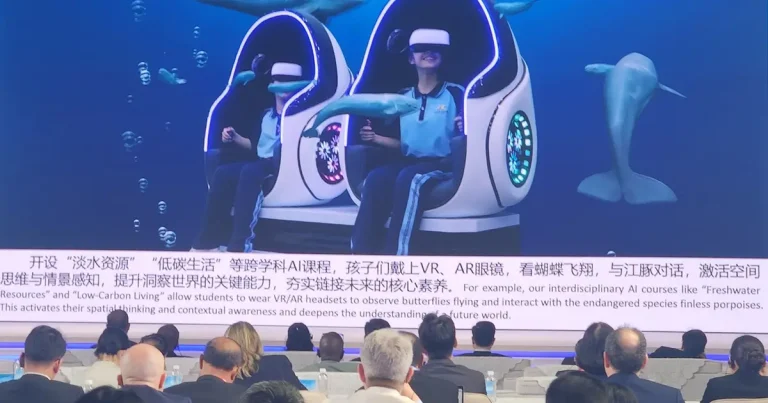Prof. James L. Perry, Ph.D. Indiana University
Assoc. Prof. Giorgi Dgebuadze, Ph.D. Ivane Javakhishvili Tbilisi State University
Adjunct Prof. Girol Karacaoglu, Ph.D. Victoria University of Wellington
Summary of panel discussion highlights by
Assoc. Prof. Patthareeya Lakpetch, Ph.D.
The session, “Striving for Excellence: Navigating Reputation and Meritocracy in Global Governance,” a highlight of the 3rd NIC-NIDA Conference 2024, brings together leading experts to examine the vital roles of reputation and meritocracy in shaping policy, organizational performance, and international relations in today’s interconnected world. Featuring insights from Adjunct Prof. Girol Karacaoglu of Victoria University of Wellington, New Zealand; Prof. James L. Perry of Indiana University, USA; and Assoc. Giorgi Dgebuadze of Ivane Javakhishvili Tbilisi State University, Georgia, this discussion explores sustainable governance, strategic reputation management, and the pursuit of fairness in global legal systems.
To begin, Prof. James L. Perry addresses the intersection of meritocracy and government performance, emphasizing the controversy that has emerged in the U.S. civil service following Executive Order 13957. This order, which reclassified career employees and removed traditional civil service protections, sparked a broader debate on how meritocratic principles can or should influence governance globally. Prof. Perry examines several theories—such as the Traditional Theory of Neutral Competence, Principal-Agent Theory, and the Quality of Government Theory—that provide frameworks for understanding how meritocracy can impact government effectiveness, accountability, and fairness. His findings underline the positive correlation between merit-based civil service practices and improved government performance, reduced corruption, and enhanced public trust.
Building on this theme, Assoc. Giorgi Dgebuadze focuses on the challenges and opportunities in achieving equity and competence in international criminal law. He explores how global governance structures, such as international courts and tribunals, uphold meritocratic principles by ensuring that individuals, particularly political and military leaders responsible for systematic crimes, are held accountable. Assoc. Prof. Dgebuadze emphasizes the complexities of balancing individual and collective responsibility and highlights the necessity for adaptable legal frameworks to address these challenges effectively. His insights reinforce the importance of maintaining both direct and indirect enforcement mechanisms to ensure justice is perceived as fair and equitable by the global community.
Finally, turning to a different yet complementary perspective, Adjunct Prof. Girol Karacaoglu examines the concept of “governing for sustainable well-being.” He argues that public policy must go beyond immediate economic gains to focus on long-term sustainability and equity. Drawing from examples of successful governance practices, Adjunct Prof. Karacaoglu underscores the critical role of government in fostering social cohesion, ensuring inclusivity, and promoting a balanced approach to economic, social, and environmental goals. His “well-being garden” metaphor illustrates a holistic strategy for achieving sustainable governance, emphasizing the need to refocus, redesign, realign, and reconnect public and private efforts to support the well-being of all citizens.
Together, these presentations converge on the idea that excellence in global governance requires a nuanced understanding of reputation, meritocracy, and sustainability. While each speaker approaches the theme from a unique angle—whether through the lens of public administration, international law, or public policy—their collective insights underscore the importance of integrating fairness, accountability, and strategic vision into governance practices. This session provides a compelling call for global leaders to navigate the complexities of governance with a commitment to both meritocratic values and sustainable outcomes.


Read news about NIDA International Conference 2024




